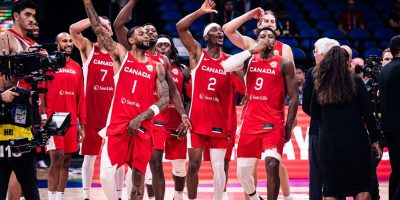The previous Collective Bargaining Agreement (CBA) between the National Hockey League (NHL) and the National Hockey League Players’ Association (NHLPA) expired Saturday September 15 at 11:59pm eastern standard time. NHLPA executive director Donald Fehr and NHL commissioner Gary Bettman were unable to agree to terms in their ongoing negotiations to form a new CBA.
The players receive a defined percentage of NHL hockey related revenues, and that percentage is drawing the most attention during negotiations. After the 2005 NHL lockout the player’s share began at 54% before rising to 57% in 2011, while the NFL reduced players’ shares to 46-48% in their new bargaining agreement last year, and the NBA owners and players receive approximately equal share of revenues. It would appear the NHL players’ share is rather high in comparison but NHLPA members will argue that the other leagues define sports related revenue differently.
The Collective Bargaining Agreement (CBA) being proposed by the NHLPA is for just 3 years while the agreement proposed by the NHL is for six years. Both time periods seem to be irrelevant due to recent history, which suggests that the expiry of each CBA will result in another work stoppage.
The most discussed issue has been the players’ share of revenues but there are a number of other issues under review during current CBA negotiations. Some of the issues proposed by the NHLPA include extra draft picks for struggling teams, and putting a cap on the amount that a team can spend on off-ice expenses. The owners also have a number of issues they would like to change including increasing the number of years a player has to be in the league before qualifying for unrestricted free agency, limiting the number of years a player can be signed for, increasing the number of years players must be restricted to entry level contracts, eliminating salary arbitration, and introducing non-guaranteed contracts as in the National Football League (NFL) where a player is not guaranteed contract salaries when cut from a team.
In light of the recent shortened NBA season, many supporters are optimistic the NHL season will not be completely lost. However, those same optimists took another blow this past Thursday, when the league announced they would be cancelling all preseason games through September 30th, and the Kraft Hockeyville preseason game scheduled October 3rd in Belleville, ON has been postponed to 2013. The fate of special events like the much anticipated Winter Classic on January 2nd, 2013 remains uncertain.
As a result of the lockout many players are currently looking to play in Europe. Some big name players who have already signed deals to play abroad include Jason Spezza, Jaromir Jagr, Pavel Datzyuk, Tyler Seguin, Anze Kopitar, and Alex Ovechkin.
Once again our hopes for the upcoming hockey season rest in the hands of lawyers negotiating behind closed doors. It is unfortunate that the NHL along with the other North American professional sports leagues seem to be consistently plagued by the threat of a lockout.




Leave a Reply